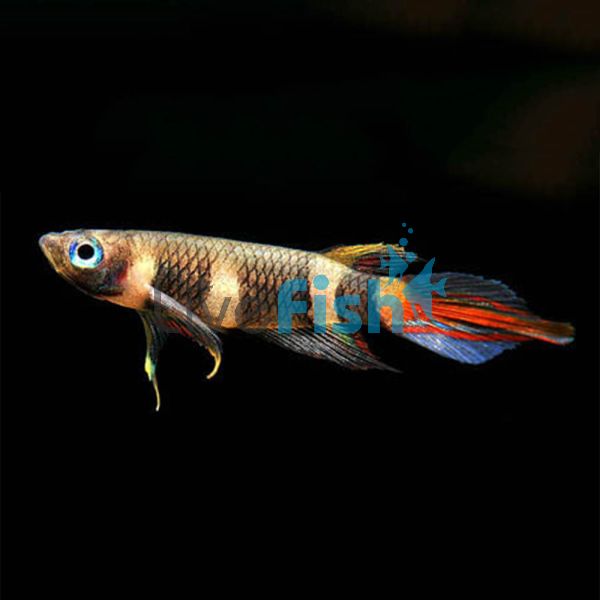Clown Panchax 1.5cm
The Clown Panchax, also known as the Banded Panchax or Rocket Killifish, is an adorable and small freshwater fish native to the slow-moving streams of West Africa. Their striking appearance and peaceful nature make them a popular choice for nano aquariums and community tanks alike since they max out at 3cm. For the aquarists who are restricted by space, these fish are
likely one of the best considerations.
- Buy 10 for $9.14 each and save 13%
Clown Panchax
The Clown Panchax, also known as the Banded Panchax or Rocket Killifish, is an adorable and small freshwater fish native to the slow-moving streams of West Africa. Their striking appearance and peaceful nature make them a popular choice for nano aquariums and community tanks alike since they max out at 3cm. For the aquarists who are restricted by space, these fish are
likely one of the best considerations.
Clown Panchax is easily recognisable by its vibrant, multi-coloured bodies. They feature alternating bands of black and orange or yellow, resembling a clown's outfit, which gives them their common name. Their fins are usually tipped with bright red or blue, which also earns them the name rocket rail killifish. These fish also have a very stop-start way of swimming which really makes it seem like they are little zooming rockets in the tank. Clown Panchax is relatively small, typically growing to a maximum length of 4 cm. Despite their small size, their vivid colours and
active swimming behaviour makes them a lively and eye-catching addition to any aquarium.
Breeding Clown Panchax in captivity is relatively straightforward. They are egg scatterers and prefer to lay their eggs among fine-leaved plants or spawning mops. Providing plenty of hiding spots and plants in the breeding tank will increase the chances of successful spawning. Once the eggs are laid, they should be removed to a separate hatching tank to prevent predation by the parents. The eggs typically hatch within 10-14 days, and the fry can be fed infusoria or newly hatched brine shrimp until they are large enough to accept standard fry food.
Tank Recommendations for your Clown Panchax
Clown Panchax are best housed in a densely planted 30 litre or larger tank with plenty of swimming space. Since these are top-water fish they really are not fussed with the hardscape or substrate choices in an aquarium. A blackwater, hardscape only, or even planted aquarium will be fine however they would stand out best in the latter option. They prefer soft, slightly acidic water with temperatures between 24 - 28°C and a pH of 6.0 - 7.0. Providing a darker background and substrate can help intensify their colours as well.
Suitable Tank Buddies
Clown Panchax is peaceful and fares well with a variety of small, non-aggressive tankmates.
Usually Compatible
Other small tetras, rasboras, dwarf cichlids, peaceful barbs, Corydoras, and small peaceful loaches.
Sometimes Compatible
Gouramis and Angelfish. While generally peaceful, these species can sometimes show a territorial behaviour.
Rarely Compatible
Aggressive, predatory, or large species that can easily stress, harm, or eat the small Clown Panchax
Feeding your Clown Panchax
Clown Panchax is a very easy fish to feed. They will take a wide range of pellets, flakes, and frozen foods. Just like any fish though they should be fed a varied diet with a mix of different foods.
The ideal diet would be a good quality micro slow-sinking pellet or crushed flake, supplemented with frozen bloodworms or even live foods like baby brine shrimp.
| Scientific Name | Epiplatys Annulatus |
|---|---|
| Care Level | Easy |
| Common Names | Clown Panchax, Banded Panchax, Rocket Killifish |
| Diet | Omnivore |
| Fish Family | Nothobranchiidae |
| Lifespan (years) | 3 |
| Max. Length (cm) | 3 |
| Min. Tank Volume (l) | 20 |
| Origin | Africa |
| Reef Safe | Yes |
| Sociability | Peaceful |
| Venomous | No |
| Water Conditions | 22-26° C, pH 6.0-7.5 |




